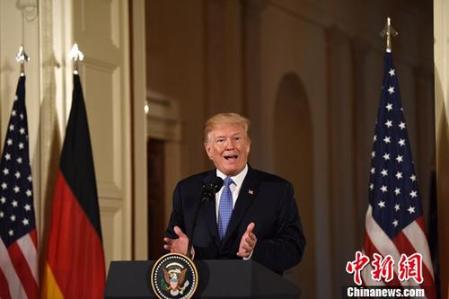G6 plus 1 and the hubris of US unilateralism
- By Sumantra Maitra
 0 Comment(s)
0 Comment(s) Print
Print E-mail China.org.cn, June 11, 2018
E-mail China.org.cn, June 11, 2018

One of the chief causes for the fall of an empire is imperial overreach – resources and manpower spread thin, along with a battle against the entire world all at once. But a close second cause would be hubris –the idea that one can take over the entire world or even attempt to do so. As G7 starts and the U.S. trade war against its former allies heats up, it is time to ponder the wisdom of hubris.
America finds itself isolated in this trade war, dubbed as "G6 plus 1" by a segment of the media. G7 itself is an anachronism, regarded as a group of seven wealthy nations, which for some baffling reason includes Italy as a member but not India or China. Nevertheless, G7 is considered a stretch of American economic power, a sort of force multiplier.
But the discord among its allies is evident. The U.S. has faced major backlash over the imposition of tariffs on steel and aluminum from some of its staunchest allies, including the EU, Mexico and Canada. The tariffs were unilateral and are thought to be punitive, especially to the EU, which is not considered a potential rival to the United States.
Canada was vehement in its protest of U.S. tariffs. Prime Minister Justin Trudeau took to Twitter to talk about how common sense would prevail in U.S. someday, as did Canada's finance minister, Bill Morneau, saying that this is not how allies are treated.
Even Japan, one of the most steadfast allies of the U.S., rallied against unilateralism, displaying bipartisan opposition. Japan's finance minister, Taro Aso, was quoted by Reuters as saying, "I've been to these meetings for a long time. But this is a very rare case where opposition against the United States was unanimous."
The U.S. secretary of the treasury, Steve Mnuchin, was given the task of sugarcoating the Trumpian barrage to their allies. Mnuchin explained that it was all part of an effort to "rebalance the U.S. trade imbalance" which while nicely termed, failed to explain how retaliatory measures would be offset. Are the American manufacturers and its steel and aluminum industry capable of carrying the burden of tariffs, which is essentially a tax on the U.S. citizens by another name?
For example, the tariff on aluminum could mean an extra surcharge on common items like beer cans, which would hit American consumers. This is not to mention counter tariffs on U.S. exports. Funnily enough, all those who are paying metal tariffs now are NATO allies and partners – Britain, Canada, France, Germany, Italy and Japan – the result of a move which was supposedly meant to counter China and was justified by Washington as such.
President Trump of course was less than benevolent on Twitter. On Monday, he rallied against Canadian import taxes, and said the U.S. will "WIN" this time, much to the bafflement of the Canadian minister of foreign affairs, Chrystia Freeland, who responded on U.S. television with a single word of incredulity: "Seriously?!"
Regardless, despite the drama of this trade posturing – and it is posturing, not a trade war yet – it has affected the EU and NAFTA partners more than competitors like China. This is understandable, as China has a competitive advantage over the U.S. due to its manufacturing and labor base being better positioned.
The Trumpian economic mindset signifies a strategic perspective. By Trump's reasoning, American troops have been placed in Europe for European security, which means those countries need to act like American vassal states.
Incidentally, in a head-to-head between equal or near-peer powers, like the one between China and the U.S., there will always be a possibility of an impasse. In other words, the U.S., while failing to do anything to China, in placing equally harsh measures on the EU, will only force Europeans who are used to American subsidies to look for better markets with other trade partners to offset those losses. In fact, that effect is already evident as visible overtures have been seen from the EU to China.
While China's manufacturing advantage means the chance of a deal between U.S. and China, the same is not true with Europe, which has no cards to trade with the U.S. and fewer chances of striking a grand bargain.
Will the hubris of the U.S. only lead to its humbling on the world political and economic stage? We will, of course, find out in a few months.
Sumantra Maitra is a columnist with China.org.cn. For more information please visit:
http://www.ccgp-fushun.com/opinion/SumantraMaitra.htm
Opinion articles reflect the views of their authors only, not necessarily those of China.org.cn.





